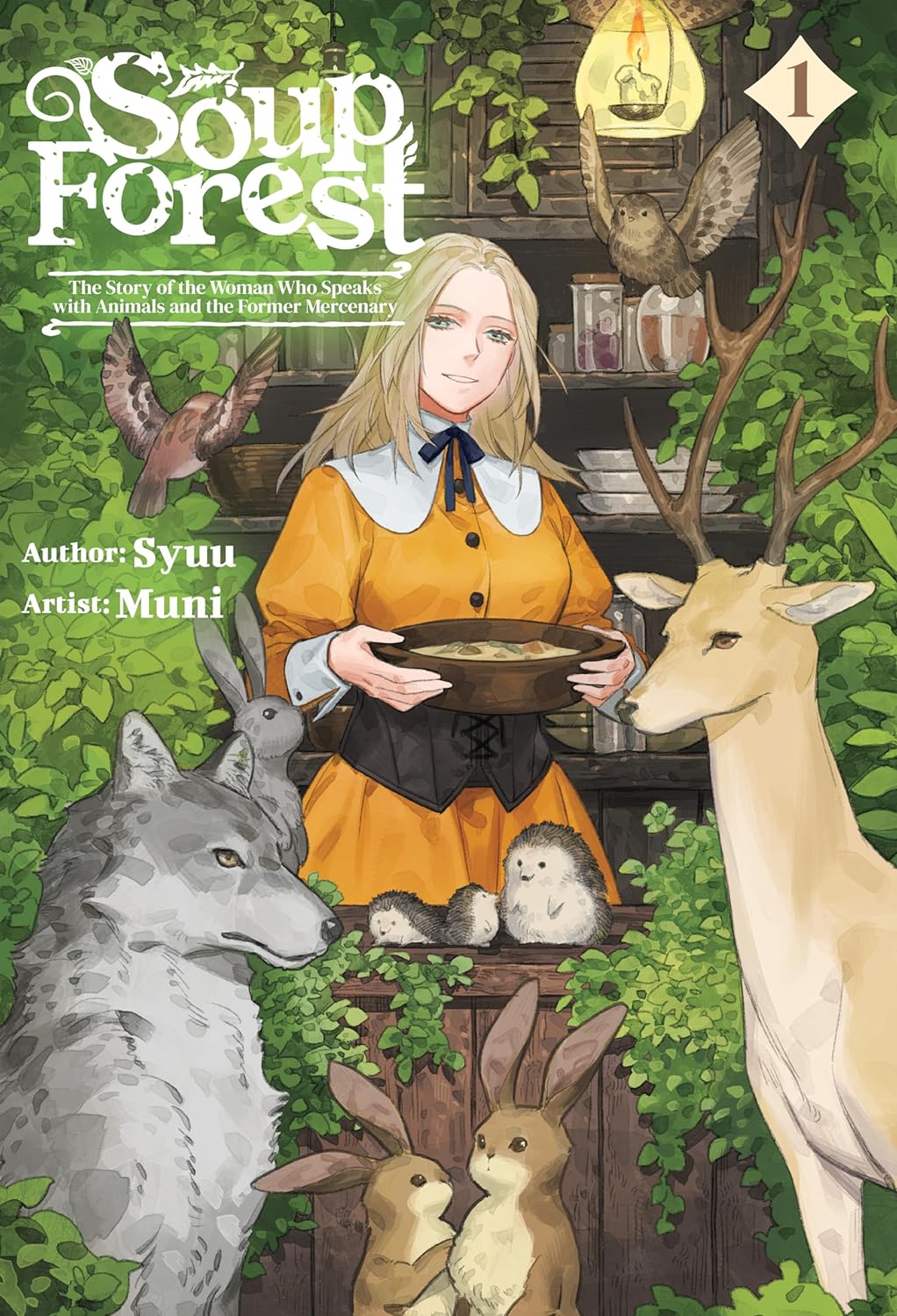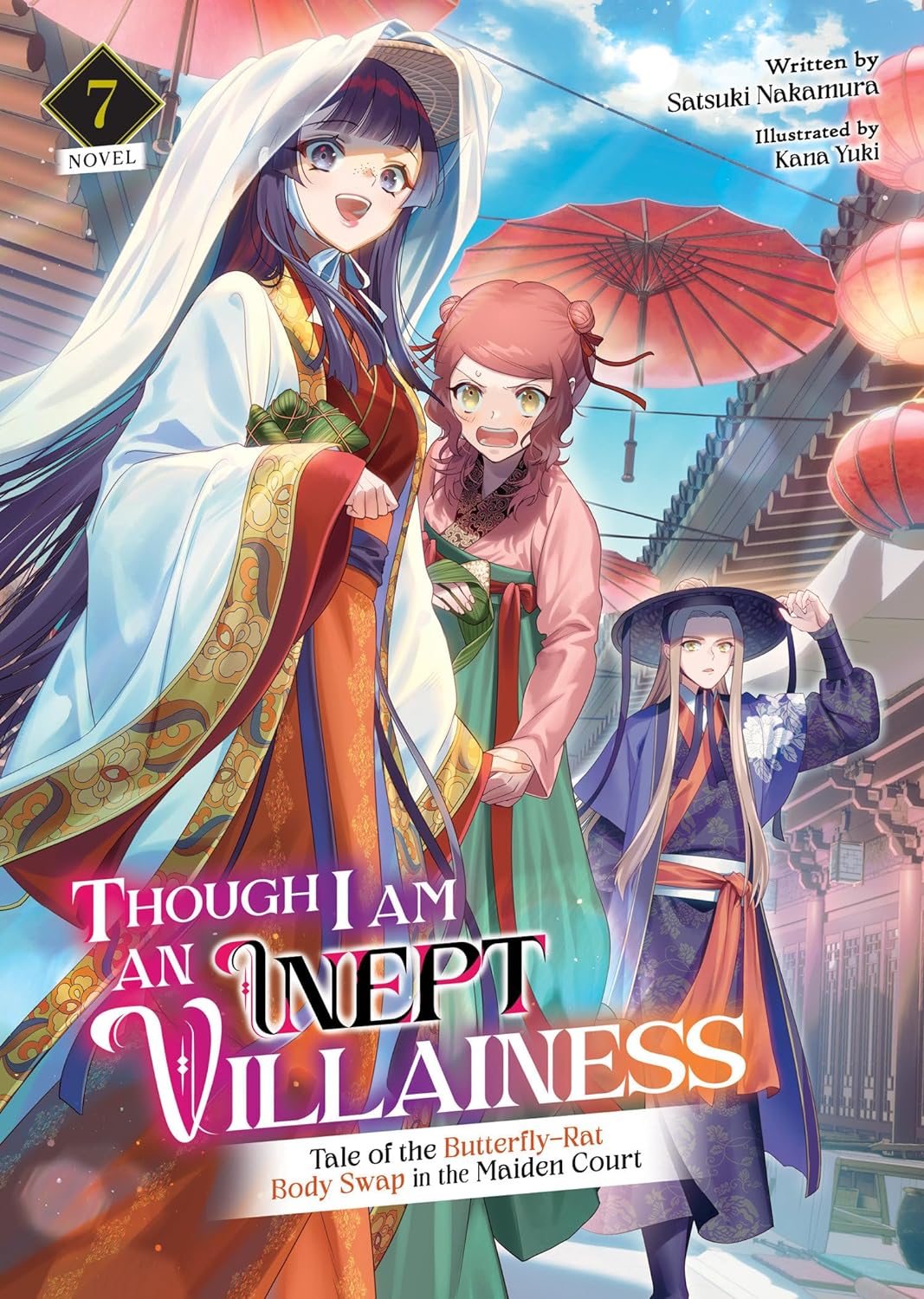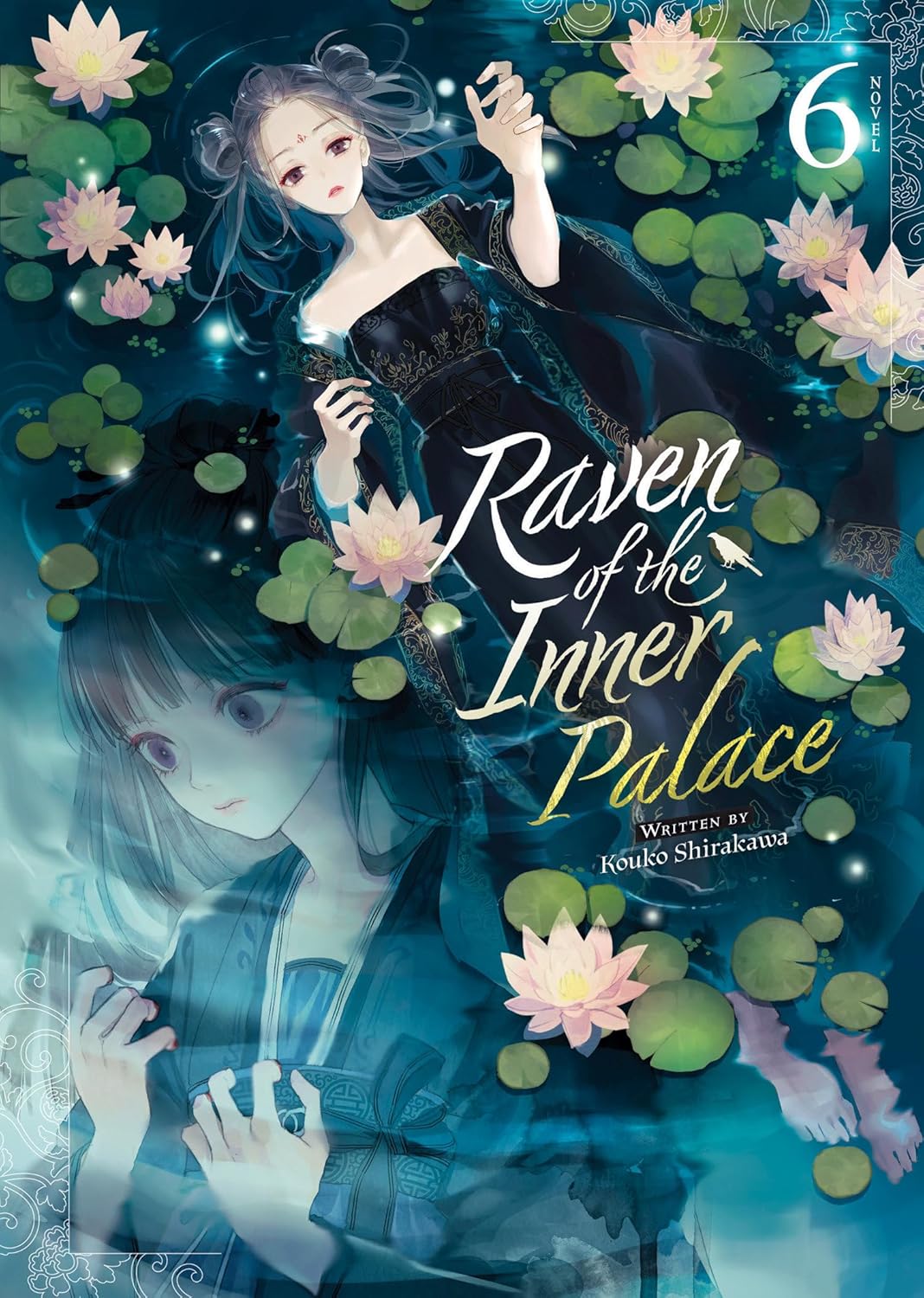By Syuu and Muni. Released in Japan as “Soup no Mori: Doubutsu to Kaiwa Suru Olivia to Moto Youhei Arthur no Monogatari” by PASH! Books. Released in North America by Cross Infinite World. Translated by Jordan Taylor.
Every so often these days, especially with light novel titles for a female readership, we see “this was popular, let’s license everything else they ever wrote”. Indeed, sometimes there’s a feeding frenzy – the same author’s Victoria of Many Faces comes out later this year from Yen. But we already saw A Young Lady Finds Her True Calling Living with the Enemy, a title I enjoyed more than I expected, so I was quite happy to give this new title from the same author a shot. Despite the Soup Forest title, which makes me think of the old Stone Soup children’s magazine from my childhood. But after reading in their previous work about a determined young woman who makes her own destiny and takes no prisoners, this book is far more relaxed and passive in tone, as fits it very broken romantic leads.
As a child, Olivia was able to hear the thoughts and emotions of animals – and humans, though this was harder. She assumed everyone could do this, but just ended up being “the weird one” to the point where her noble grandfather demanded she be taken to an Orphanage of Evil (TM). Being able to sense this future from her caretaker, she decides to escape to the forest, where she is fortunately found by a loving elderly couple. Twenty years later, they’ve passed away but Olivia has grown up to be a beautiful but very guarded young woman, more comfortable with animals than people, who runs a restaurant in the woods, The Soup Forest. (It sells soup.) The story really starts one day with the arrival of a mercenary who just retired from his work after fourteen years as he had grown weary and despairing of killing anyone else. He is also a very private, guarded person. The book’s plot is these two realizing they’re perfect for each other.
This is a relaxed story about two wounded adults finding each other, but I was surprised to find it had a very active subplot, and that subplot is our old favorite “nobles suck (except that one good noble)”. Olivia and Arthur rescue a loud, boisterous noble who turns out to have an equally extroverted sister, who immediately decides Arthur will be her new beau. This goes very badly – for her.n And there’s also Olivia’s parents, who pop up towards the end of the book and end up being the seemingly happy to see their child alive types that of course end up being “we just hope you’re NORMAL” now types. This is the main reason why Olivia thinks of herself almost as much of an animal as a person, and why her adoptive grandparents did their best to try to make sure she still remembered her humanity. The relationship between her and Arthur, in contrast to their tragic pasts, is sweet and wonderful.
This is another story that feels very complete in one volume but also has a big ‘1’ on the cover, so we’ll see what comes next. Recommended for introverts and animal lovers.



